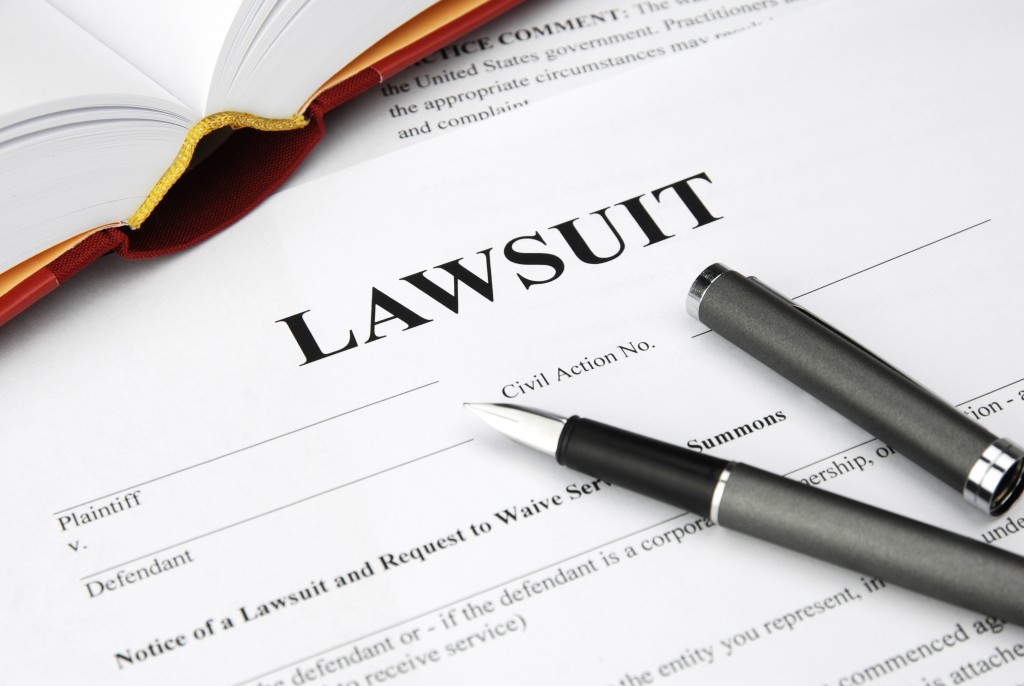The risk of your business getting into legal trouble is never zero, especially if you don’t take measures to protect yourself in the first place. But even if you’ve done everything you can to safeguard your business against a lawsuit, there is always a possibility of a summons ending up on your doorstep.
No one wants to get sued, much less go through all the hassle to fix the problem, including hiring a small business lawyer, paying all the fees, and attending numerous court dates. But in the event that you do get involved in a lawsuit, here is the best way to go about it:
1. Stay calm
No one is going to benefit from you going ballistic when you receive the summons, and panicking is not going to help you nor your business either. While getting sued can invoke so many emotions in you, be it anger, confusion, or anxiety, it’s important to remain as calm as possible throughout the entire process, especially when you think of your next move. It’s not the end of the world, so stay calm and take a deep breath.
2. Study the complaint
After you’ve calmed down, open the complaint and read it thoroughly more than once. It’s also important to do this immediately since you may have been provided with a limited time frame to respond. Review the details of the lawsuit, then take the next step.
3. Contact your lawyer
Having a business lawyer on standby is beneficial in so many ways, but especially in the instance that your business gets sued. When you already have a lawyer who you are familiar with and is, in turn, familiar with your business and how it works, handling a lawsuit will be much more manageable and is less likely to cause unnecessary trouble for your business.
In contrast, the situation will be more stressful when you put off hiring an attorney until you’ve already been sued. You will need to find a lawyer at the last minute, and even then, they may not be the right one to handle the suit.
Once you receive the summons, contact your lawyer as soon as possible. If you don’t have one yet, choose a lawyer that is reputable and trustworthy. They will be the one to help you understand the lawsuit, determine the best course of action, and find alternatives that are better than litigation. If the lawsuit involves a specific aspect of the business, such as real estate or taxation, you might want to find a lawyer that specializes in that field.

4. Gather documentation
Ask your lawyer about what documentation you need to prepare for the case. This can include paperwork, pictures, recordings, receipts, correspondences, contracts, and other documentation relevant to the incident or complaint. The more documentation you have that supports your side, the better are your chances of winning and coming out unscathed.
5. Call your insurance provider
Your insurance provider may offer you legal representation in the event that your business gets sued. In addition to that, they may cover the judgement if the other side wins, depending on the type of case made against you.
If the lawsuit involves an aspect of business that you have insurance for (worker’s comp, general liability, etc.), review your insurance policies to see if you can be covered by your insurance provider. It’s best to do this with your lawyer to avoid wasting precious time. Once you know your coverage, contact your insurance provider and explain the situation thoroughly.
6. Keep your mouth shut
Getting sued is frustrating, anxiety-inducing, and understandably aggravating. That said, you may be tempted to vent about it to someone else to release some tension. However, doing so can lead to information being used against you even if what you said is taken out of context or completely non-malicious.
Keep the lawsuit discussion between you and your lawyer only. Refrain from talking about it with your business associates, employees, friends, family members, and much less the person suing you. Separate your personal life from your business persona. If you want to vent to someone else, the law says that you may speak to your doctor, priest, or spouse about the lawsuit. But other than those people and your lawyer, you should not discuss any details about the lawsuit to avoid making the situation even worse.
In the event of a lawsuit, emotions will likely be running high, especially if it’s your first time dealing with something like this. But even if you are completely innocent, you have to prove it to the court, and getting riled up will not help your case. So keep calm, gather yourself, and work with your lawyer throughout the process to increase your chances of winning the case.

